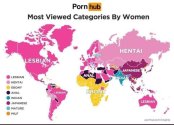The PLA and the Chinese people eagerly anticipated Japan's involvement in the West Pacific campaign.
This is an excellent opportunity to address historical issues between China and Japan, and it helps the Japanese people correctly understand the position they deserve in the international community.
And this is why you know it's just talk; even if it's coming from Takaichi. The general idea is that if China manages to take Taiwan, then Okinawa and other Japanese islands can be threatened. However if you look at a map, it becomes quite clear that this narrative is unworkable. The greatest vulnerability to Japan is its reliance on overseas trade, and not only is China Japan's most vital trading partner, most of Japan's trade flows through the Taiwan Strait and the South China Sea. A war with China will mean that this route will be severed
regardless of whether China wins.
Not only that, but Japan also knows that China is very unlikely to ever act militarily against it unless it enters the war first. And that if this happens, there's a very good chance that China is going to look for some serious payback. I think that there's at least a 60% chance Japan would stay out of a Western Pacific war.
There’s this strange attitude many ordinary Japanese seem to have toward China, as if China were the source of all evil and the most convenient thing to blame. Rice prices going up? China. Unfriendly deer or bears in the parks? China. Bad strawberry or grape harvest this year? Also China.
The narrative goes like this: China is so powerful that it’s behind every bad thing in the world, yet somehow so weak that the Japan–US alliance can easily “defeat the villain.”
And honestly, it shows up even in Japanese literature and pop culture — so much sympathy for the wrongdoer, while the victim who judges or tries to correct them ends up painted as the bad guy. Then, out of nowhere, the victim forgives them without the perpetrator paying any price. Come on — debts don’t just disappear; they pile up with interest.
The Japanese people are stuck in the same kind of mindset vis-a-vis China as the West. They're still thinking of China as if it were still the same country that existed in the '90s or early 2000s. But the thing is that their opinions don't matter, and the Japanese government was never a real democracy in the first place.
I imagine that the JSDF is far more aware of China's capabilities and they know that they can't measure up. Even now, the JASDF has been run ragged trying to keep up with intercepts of Chinese aircraft so they know that they're nowhere near ready for a real war.

